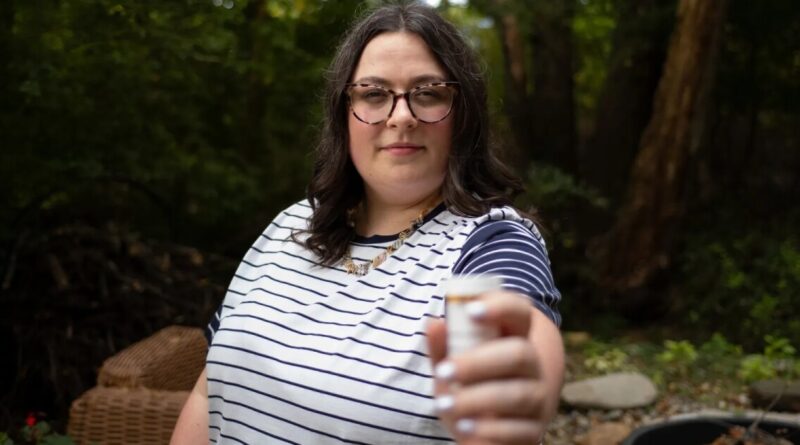Health Topics: Cheap, effective drugs support US health care. Now they are in danger
Unlike other countries, the US does not regulate prescription drug prices. Instead, policymakers about 40 years ago came up with another idea to make prices more flexible: using the power of the free market.
They thought that if they made it easier for companies to copy brand name drugs and sell them at a very low price, generic drug manufacturers would cross over and lower prices.
And that worked for a long time. Must be it has saved Americans billions of dollars decades ago.
But there are signs that this system may be in serious trouble.
The Checkup question is: Why is this the case and are policy makers doing anything about it?
Media Relations Specialist Lizzy McGrevy spoke with Leslie Walker, senior producer at health strategy news agency Tradeoffs. Tradeoffs released a special series called Race to the Bottomwhich examines weaknesses in the US generics supply system.
This article has been edited for length, style and clarity.
McGrevy: Hi Leslie, so how important are generic drugs to our health system and why are they in such serious trouble right now?
Walker: Medicine is truly the backbone of American health care.
They now fill 9 out of 10 orders we take. They lower our cholesterol, manage our diabetes, stress — you name it.
But this important industry is now under pressure from both sides.
On the other hand, you’ve got these very old medicines — essential things like antibiotics and cancer treatments that economists have told me have gone down a lot.
That forces some companies to isolate themselves or exit the market altogether, causing shortages and quality problems.
And on the other hand, you have new, very expensive drugs that have been going on for 15 years, even 20 years with no competition at all, and that hurts patients also suffer.
McGrevy: And I don’t think, this is 100% bad for consumers but it might not be such bad news for big pharma — those brand name drug manufacturers. Do they have a hand in these problems?
Walker: Of course, when it comes to new, high-priced drugs, big pharma has devised effective strategies to prevent competition.
Playing copyrighted gamespaying middlemen who buy drugs on behalf of insurers and employers to prefer their products to cheaper generics, to name just a couple.
McGrevy: And Leslie, let’s talk for a second about another big issue that you highlighted… the shortage and the quality problems with these cheap generics.
We hear about US deficits all the time, especially since this pandemic. Are there any signs that this is about to get worse?
Walker: You are right, Lizzy, that drug shortages have been an ongoing problem for a while, but there are signs that it is getting worse.
A recent report found that the number of drug shortages is at a 10-year high and that shortages are also lasting longer — three years on average.
Furthermore, the supply of these drugs is becoming increasingly scarce.
Those very low prices are pushing companies to reduce production and move more production to countries like India and China.
Economist Marta Wosińska with the Brookings Institution says that creates a new crisis of quality and reliability for the US.
“Are we prepared for the disruption of natural disaster services? What would happen if there was a conflict with China? We don’t really face this kind of weakness,” Wosińska said.
McGrevy: Are policy makers doing anything to try to boost this important industry?
Walker: There’s a lot going on in Washington. The Federal Trade Commission is trying to crack to some of those games brand companies play to block competition.
And in Congress, there is a proposed bipartisan bill that targets low-cost drugs that are often in short supply, essentially trying to make those volatile markets more attractive and credible to manufacturers. .
That said, most of the movements we see are moderate.
And some experts told me that they think more changes are needed.
That includes Alfred Engelberg, one of the original drafters of the 40-year-old law, known as the Hatch-Waxman Act, that spawned the modern generic industry.
“It was the right thing to do at the time,” Engelberg said. But times have changed. You have to find a new paradigm for the new times. ”
McGrevy: Thank you so much for this valuable information, Leslie. You can listen to Leslie’s exclusive series for Tradeoffs. It is called Race to the Bottom and it’s available wherever you get your podcasts.
The Checkup by Side Effects Public Media is a regular audio segment on WFYI’s daily podcast, WFYI News Now.
Side Effects Public Media is a health reporting partnership based at WFYI in Indianapolis. We partner with NPR stations throughout the Midwest and surrounding areas – including KBIA and KCUR in Missouri, Iowa Public Radio, Ideastream in Ohio and WFPL in Kentucky.
Copyright 2024 Social Media Consequences
#Health #Topics #Cheap #effective #drugs #support #health #care #danger
